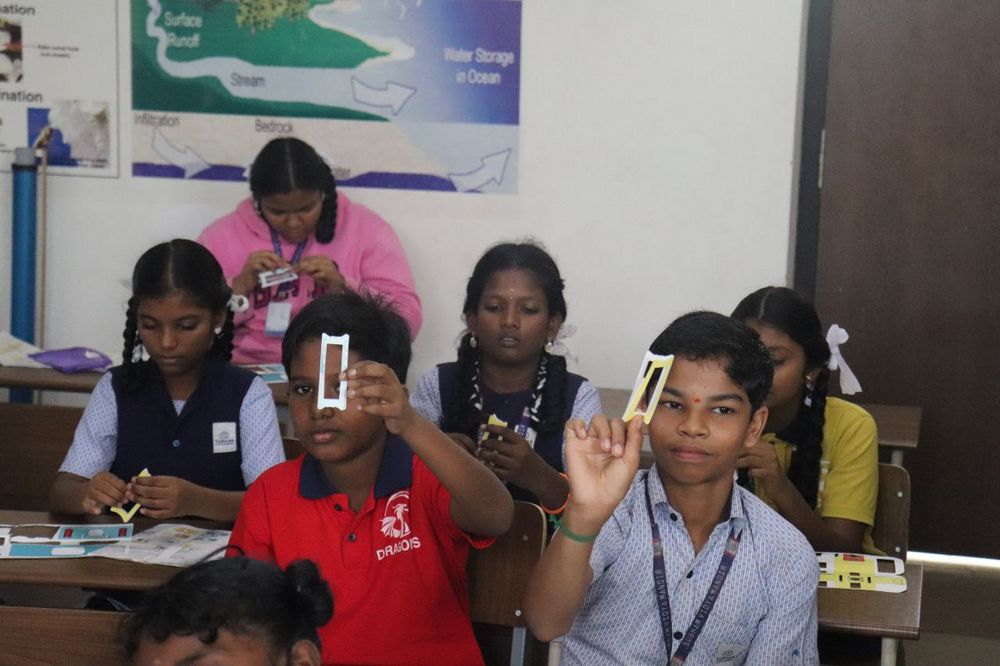Workshops on Foldscope construction and Designing a lunar habitat at Junior scientist program
Open Space Foundation takes immense pride in its significant role in the Junior Scientist Program at Shubham Vidhya Mandir School, Sirkali. This three-day program, focused on the wonders of science and mathematics, featured exciting workshops and exhibitions designed to inspire students. Open Space Foundation conducted two workshops, leaving an indelible mark on the minds of numerous participating students.
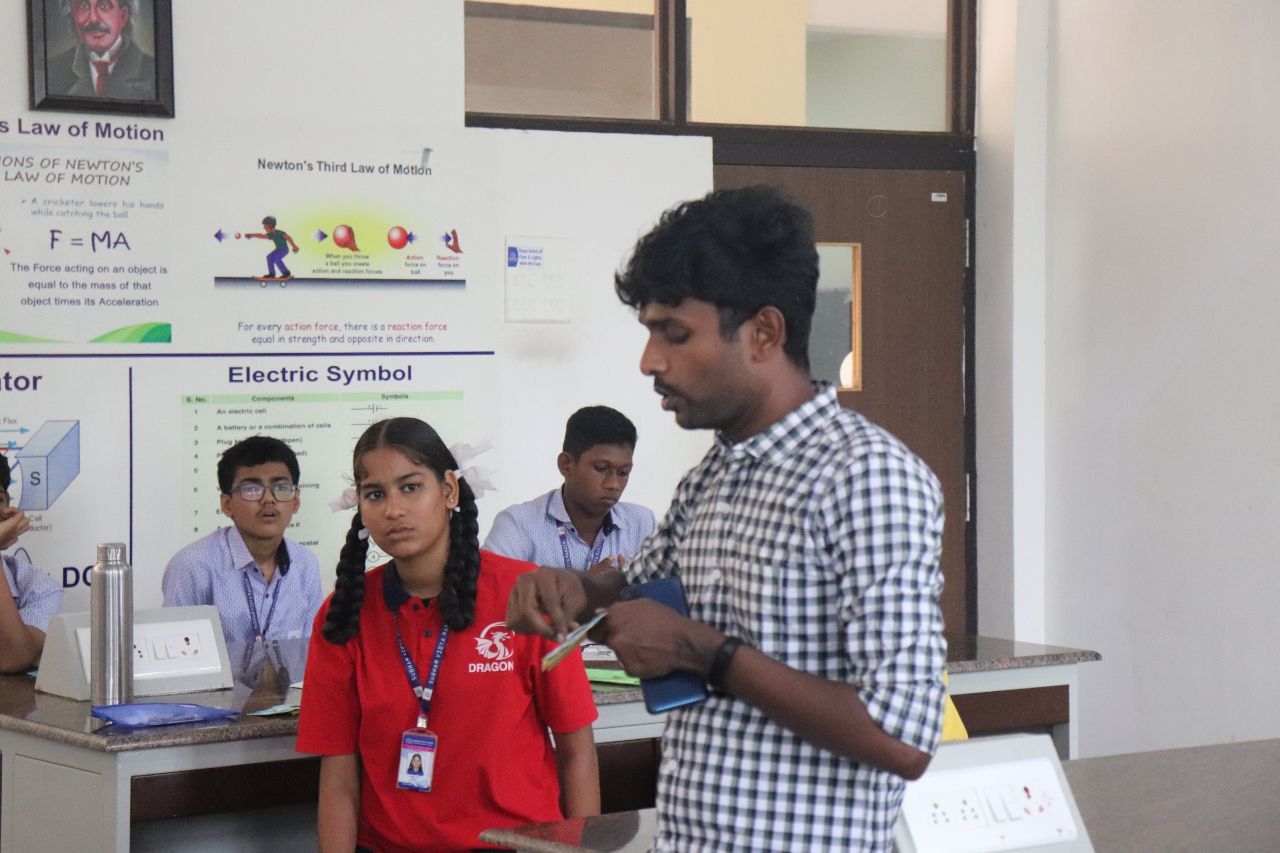
Biology Workshop: Unveiling the Microscopic World
The first workshop aimed to introduce students to the fascinating world of microorganisms through the construction and use of foldable microscopes. These foldscopes, powerful tools in practical biology education, were distributed to students, who actively engaged in the workshop.
Workshop Activities
The day commenced with an enlightening introduction to microscopes, delving into their history and significance. The main event started with students receiving their foldscope kits, complete with manuals. Under the meticulous guidance of the Open Space team, students actively participated in assembling the foldable microscopes.
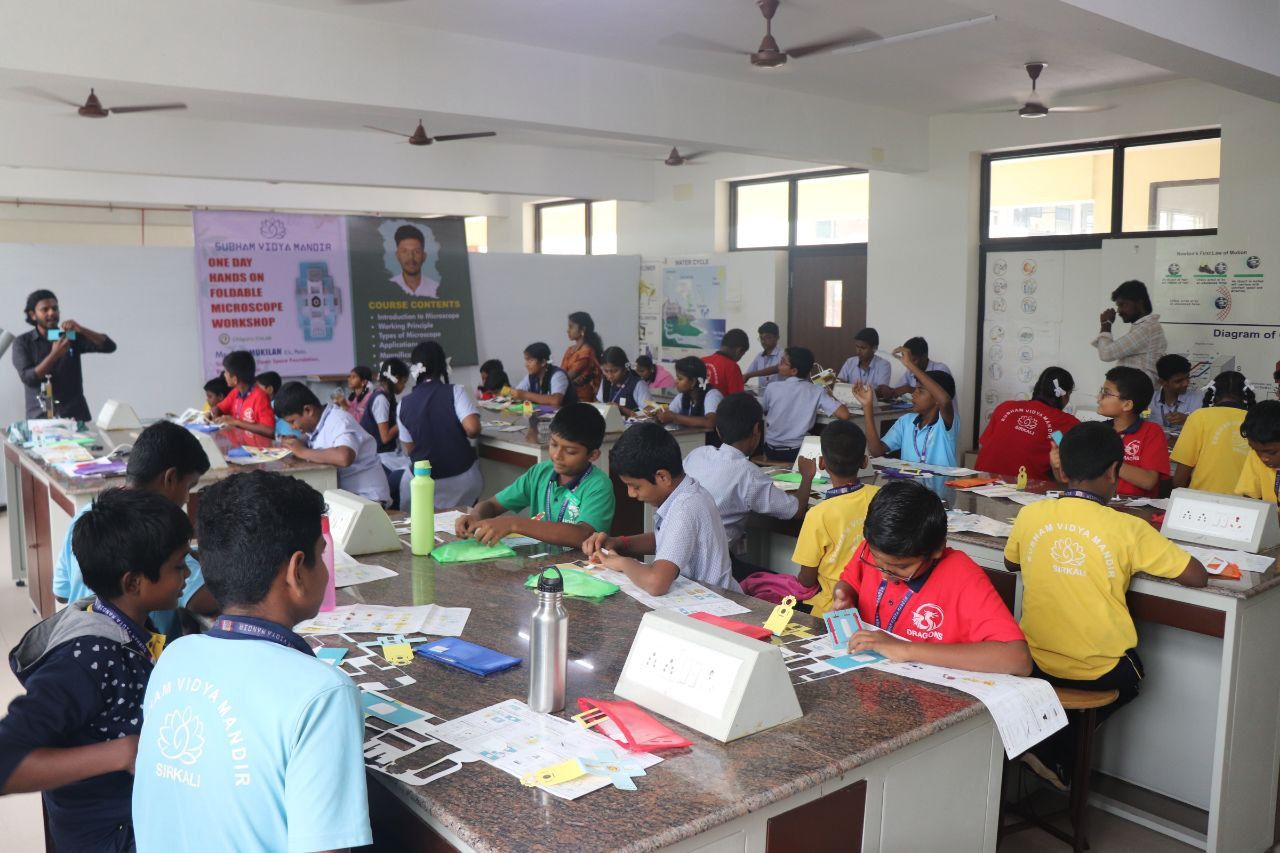
Introduction to Microscope Components: The workshop began with an overview of the microscope's components, emphasizing the importance of each part in the functioning of the foldable microscope.
Hands-On Assembly: Students were then provided with foldscope kits and manuals. Following step-by-step instructions, they carefully popped out all the parts of the microscope from the stencil and started arranging them for easy management.
Lens Arrangement: The magnetic couplers were placed in the lens guide, and after cleaning the lens with a cotton bud, students arranged the lens in the lens guide with the focuser and panning guide.
Ready to Explore: The entire process resulted in a fully functional microscope ready to explore the intricate details of the micro world.
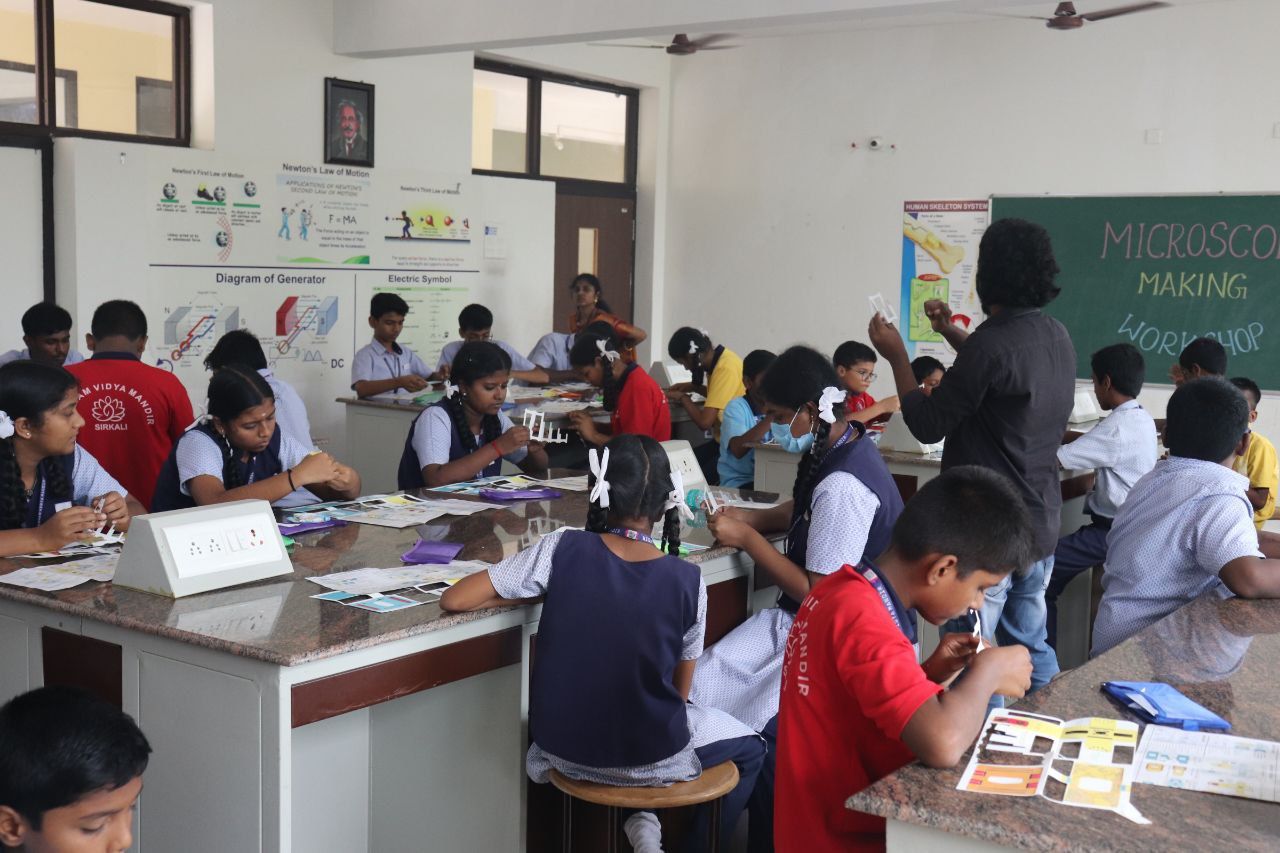
Practical Exploration
Once the microscopes were constructed, students were instructed to collect samples from ponds, plants, and various other sources. They explored a range of specimens, from human hair to spiders, onion peels, and plant leaves, witnessing the wonders of the microscopic world.
Post-Workshop Initiatives
Following the workshop, a Foldscope Club was established in the school. This initiative allowed students to continue their explorations, sharing their insights with club members and the wider community. The engagement extended beyond the event, with students capturing images of their discoveries and sharing them with their peers.
Lunar Habitat Design Workshop: Igniting Creativity through CAD
The second day introduced students to the world of computer-aided design (CAD), providing them with the skills to materialize their imaginative ideas digitally. The workshop focused on using Tinkercad to design a water bottle, offering an entry point for students new to CAD.
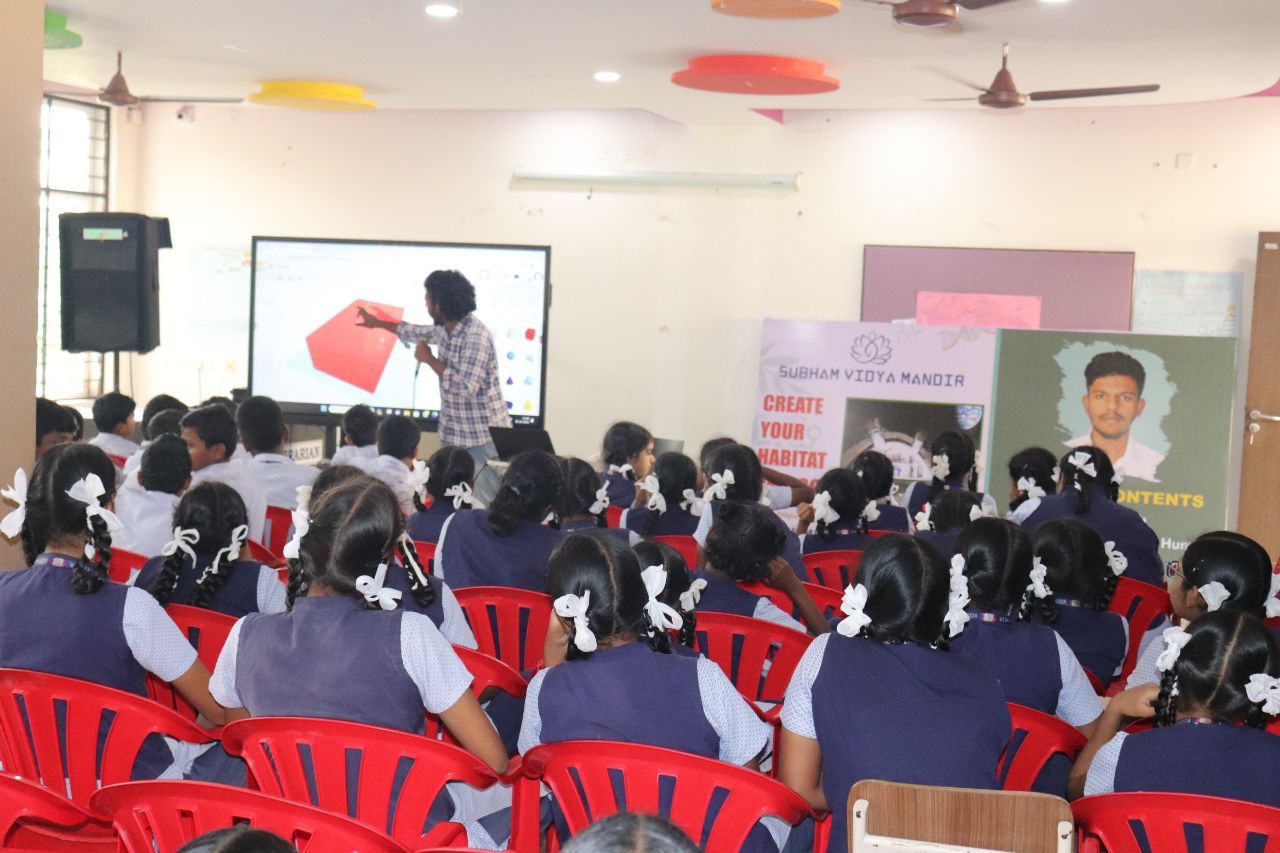
Workshop Activities
The workshop commenced with an introduction to CAD, guiding students through Tinkercad's functionalities. Participants learned to navigate the workspace, manipulate solid and hole shapes, and create intricate designs. The culmination involved a discussion on the considerations for creating a lunar habitat, followed by students designing and presenting their models.
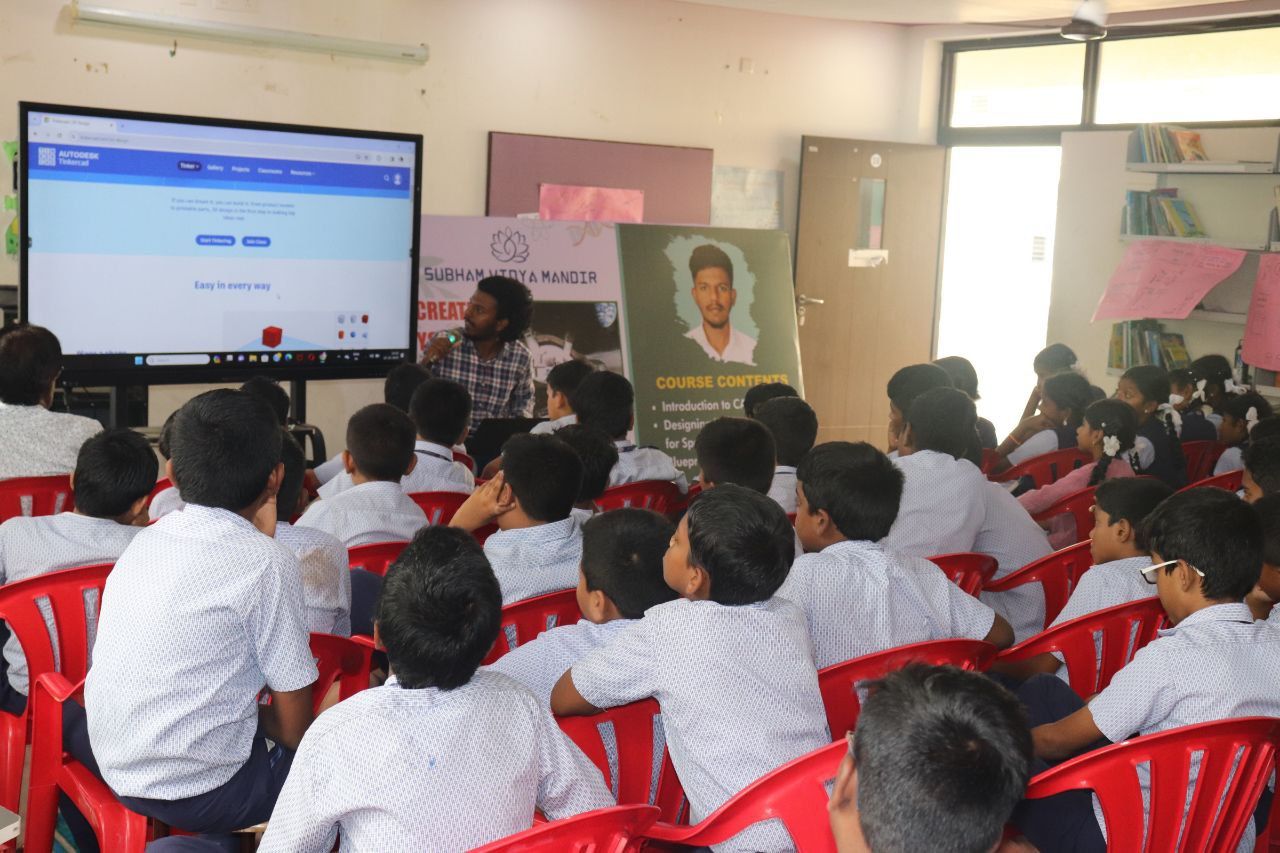
Student Innovation
The students showcased remarkable creativity in designing lunar habitats, demonstrating a keen understanding of CAD principles. Their models were not only technically sound but also infused with imagination, showcasing the potential of the next generation of scientists and engineers.
Open Space Foundation's participation in the Junior Scientist Program at Shubham Vidhya Mandir School, Sirkali, exemplifies our commitment to nurturing scientific curiosity and fostering hands-on learning experiences. By providing detailed insights into microscope construction and empowering students with essential skills in computer-aided design, we aim to inspire the next generation of scientists and engineers. The establishment of a Foldscope Club and the innovative lunar habitat designs are testaments to the lasting impact of our programs, encouraging students to explore, create, and share their scientific journey with the world. As we reflect on this event, we eagerly anticipate the continued growth of these budding scientists and engineers in their pursuit of knowledge and innovation.

